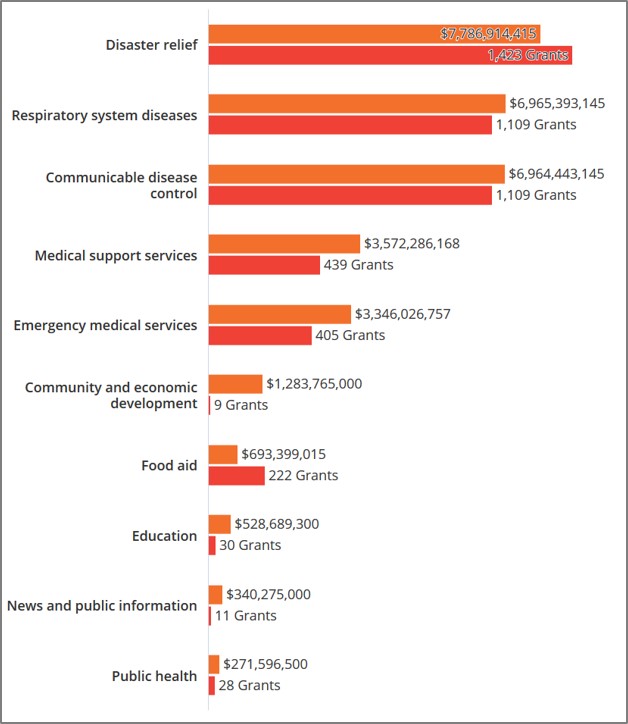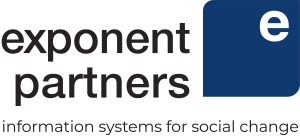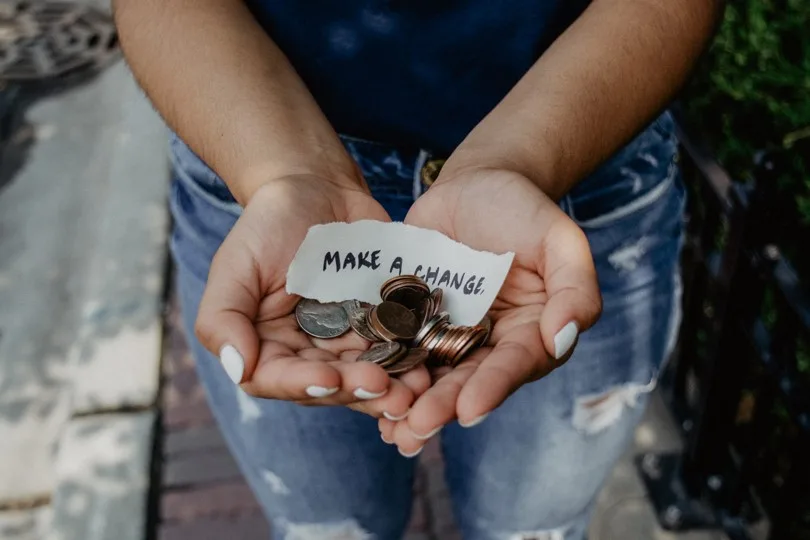COVID-19: Philanthropy’s Moment of Truth
Since the World Health Organization declared the novel coronavirus (COVID-19) a pandemic in March, hundreds of grantmakers and foundations launched funding efforts to provide relief. The philanthropy sector has an unprecedented opportunity to loosen the fetters of institutional processes to ramp up impact, to fund innovatively, and encourage projects that address structural issues that limit equity during this public health crisis and beyond.
What a Difference a Year Makes
In March of 2019, I attended the PEAK Grantmaking conference in Denver. It is one of my favorite gatherings to connect with and learn from peers in the philanthropy sector. One lunch talk featured Edgar Villanueva, Vice President of Programs and Advocacy at the Schott Foundation and author of Decolonizing Wealth: Indigenous Wisdom to Heal Divides and Restore Balance.
The thought-provoking discussion asked the audience to consider viewing our philanthropic work with a “decolonization” lens, to ensure our efforts restore balance and empower underrepresented groups. Villanueva described how money is a form of medicine in that it has the ability to heal the wounds of communities suffering under generations of economic disadvantage and exploitation. The philanthropy sector has a unique responsibility and opportunity to “move the money to where the hurt is the worst,” Villanueva said.
Fast forward to March of 2020, and the PEAK conference planned in Seattle was canceled due to the COVID-19 pandemic outbreak. In the months to follow, many marginalized communities across the nation are reeling from the fallout with higher rates of illnesses and deaths among the most vulnerable in our society. The Coronavirus pandemic has illuminated and exacerbated the socioeconomic and racial disparities that have long existed in our society. If the philanthropy sector’s purpose is to promote the welfare of others, now is the time to step up and heed Villanueva’s call to action.
Villanueva’s Decolonizing Wealth Project (@DecolonizWealth) is leading by example by launching a rapid response fund to provide emergency support for the most vulnerable Native American families and communities impacted by COVID-19 in partnership with Native Americans in Philanthropy and the National Urban Indian Family Coalition. Using the Giving Circle platform Grapevine, the Native American Community Response Fund supports Native-led nonprofits in the spirit of solidarity, not charity. Also, our friends at the NDN Collective continue their core mission serving the Native American community with an expanded COVID-19 response.
Getting Vision and Funds to the Frontlines
Candid Compilation of Funding for Coronavirus (COVID-19)
Candid, the organization formed when GuideStar and Foundation Center joined forces, operates research, education, and training programs designed to advance knowledge about philanthropy at every level, and provide under-resourced nonprofit organizations with the tools they need to better fulfill their missions.
Candid has created a comprehensive online resource that compiles pandemic related grants information from across the sector for nonprofits seeking funding for response and relief efforts. Nearly 500 funders and their COVID-19 related grants are tracked by Candid. Visit their website to learn more.

Families and Workers Fund
Last week an alliance of grant makers and individual donors committed $7.1 million to launch the Families and Workers Fund, a new fund dedicated to serving the workers, families, and communities most devastated by the economic and health crises resulting from the COVID-19 pandemic. The Ford Foundation, Schmidt Futures, Open Society Foundations, the JPB Foundation, W.K. Kellogg Foundation, the Annie E. Casey Foundation, and Amalgamated Foundation contributed to help make grants for emergencies and for advocacy efforts to push for long-term policy efforts to reshape labor regulation.
Doubling Their 2020 Giving
As COVID-19 has done an incredible job of revealing long-term structural inequities, foundations are responding to the opportunity to fund social justice. Libra Foundation is doing just that. They have doubled their giving from $25 million to $50 million for 2020. Their first round of grants is slated to give $22 million to social justice organizations.
Finding A Solution to the Testing Problem
The Rockefeller Foundation, led by Dr. Raj Shah, is introducing an ambitious and radical plan to access and network capacity to increase testing to 30 million Americans a week. The plan calls for tripling the current 1 million test per week in 6-8 weeks and increasing it ten-fold within 6 months. The Rockefeller Foundation is providing funding for their vision where they “… envision an America where everyone who needs a test can get one.” #MeetingThisMoment
Additional Resources for Philanthropy Sector Professionals
Still On(line)! PEAK 2020: Courage in Practice
PEAK Grantmaking is a community of 3,500 grants management professionals who lead the way in advancing equitable, effective practices. The 2020 conference originally planned for Seattle has shifted to an online series called PEAK 2020: Courage in Practice. The month-long virtual conference includes learning and networking opportunities starts May 5th with a Kick-off Happy Hour. Plus, PEAK recently launched a new COVID-19 Connect hub for members that contains the latest resources and invites members to share how their foundation is responding to the crisis and supporting grantees.
Not Only Money: Hewlett Foundation Nonprofit Resources
The William and Flora Hewlett Foundation, dedicated to advancing ideas and supporting institutions to promote a better world, recently published a thorough list of COVID-19 Nonprofit Resources that stretch beyond funds. Their compilation includes non-financial resources including guidance for board members, crisis management advice for leaders, and more.
Do you know of other ways the philanthropic community is responding to the pandemic that I haven’t mentioned in this blog? Email me and let’s help each other spread the word.

